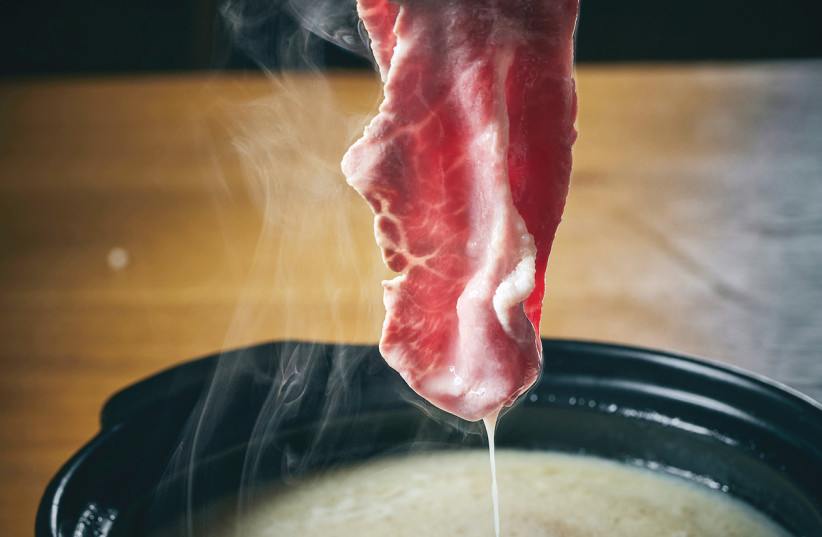In between the growing gentrification, easygoing local businesses and residents, ancient mosques and the aroma of fresh seawater, the last thing you’d expect to come across on a side street in Jaffa is a portal named Umai (“tasty” in Japanese), that propels you at the speed of the Shinkansen (Japanese bullet train) more than 9,000 km. away.
Within seconds of being greeted at the door of Alex Abramov’s house (or “home” as my partner and I soon realized) with the phrase, “Irrashaimase” (welcome), and being asked to ditch our shoes and slither into the slippers waiting for us at the entrance, it was clear this wasn’t going to be any normal dining experience. And we haven’t even begun talking about the food, which in the words of my partner was “oh my!”
After stints in Japan, Singapore, Thailand and Australia, Abramov, with a wistful longing for home, Israel, where she grew up, returned – only to be hit with the pandemic which began weeks after touching down.
The wave of private chef events arising from the lockdowns swept her along with it, and from there, the culinary experience of Umai, held in her own home, was created.
In Abramov’s case, the experience of hosting two dozen guests in her large dining room adjacent to an impressive kitchen, has been perfectly crafted, hitting the right balance between intimacy and extravagance.

What's on the menu?
Umai offers two weekly Kaiseki-inspired tasting-menu evenings, lasting around three hours, with 10 dishes, each paired with the perfect alcoholic beverage.
Kaiseki, almost an art form in itself, is a traditional multi-course dinner, highlighting a specific seasonal theme. Only fresh, high-quality ingredients are served, making for a complete, wholesome dining experience.
In addition, Umai hosts one evening a week of Izakaya, a more laid-back experience with an open bar and dishes à la carte. The menu changes depending on the ingredients available (fish is provided locally by Fish Batshon and meat by Big Itzik), and how Abramov is feeling.
WE WERE treated to the winter-menu Kaiseki-inspired meal, and the experience rivaled no other. We started with the sakizuke (appetizer), ebi no fuyu, a crystal shrimp tartar topped with edible flowers (a recurring theme in the meal) that came with a lovely side of gooseberry and crackers. Up next came the kin sui – a black, crab filled dumpling, bathing in a glorious dash broth, topped with edible gold.
Kunse otsukuri, a smoked seasonal sashimi topped with cherry tree leaves, gorgeously presented in a glass orb that was used to trap the smoke followed.
We were also served a broth, which, according to Abramov, was made out of “everything that’s good in this world.” We were also given an assortment of goodies to dip into the broth and cook. These included vegetables, shimeji mushrooms, Spanish mackerel, and how could one possibly forget the Shabu Shabu (wagyu beef). Its name comes from the sound of the swish when one dips the wagyu meat in the broth. It only takes two dips for the meat to be perfectly cooked.
The broth was then taken from us and transformed into a risotto; a fine example of making the most of one dish. Another highlight was a watermelon radish which I never knew existed. The meal was accompanied by Japanese bears, and plenty of high-grade sake, served both hot and cold by Abramov and her two affable assistants. The evening was capped off with matcha ice cream, profiteroles and fresh blueberries.
“I just love my job,” Abramov told us. And we loved her cuisine and hospitality.
As for prices, the Kaiseki will set you back NIS 550, whereas the Izakaya costs between NIS 48 and 72 per dish. Stay tuned for the spring menu. For more information, visit www.umai-tlv.com.
Umai
8 Abed El Rauf El Bitar, Jaffa
Tel: 052-597-7897
Open: Tuesday, Thursday and Saturday nights
Not kosher
The writer was a guest of the restaurant.
